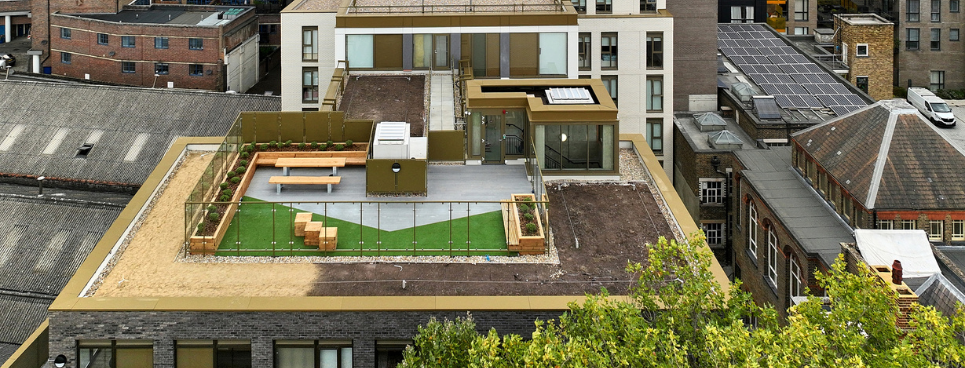News flash! Host Shortlisted for Three Prestigious GSL (Global Student Living) Awards 2025 and Retains Platinum Operator Certification
We've still got a couple of rooms left! ROOMS SELLING FAST - BOOK NOW

Whether you’re getting ready to start your first or final year, one of the biggest decisions you’ll make as a student – besides your course, is where you’re going to live. So, it’s important that you’re well informed and know all your options before you make your decision.
To help you in your decision making, below are a few questions you should be asking yourself when searching for your student accommodation.

Location is key for most students when choosing their accommodation. However, what one student feels is an essential factor for location, another might disagree. So, really think about what’s key for you when it comes to location.
Is it that you’re located as close to university as possible so you can literally roll out of bed for class? Perhaps you don’t mind a short a walk to uni if you’re located within touching distance of the city’s bars, restaurants and shopping outlets? And what about public transport? If you’re regularly travelling home, how accessible is the nearest train or bus station?

Student accommodation has come a long way in recent years; nowadays you can expect far more than simply a bedroom and kitchen area to live in.
If you choose to live in purpose-built accommodation such as Host, there’ll be a whole range of additional benefits that you won’t get with a privately rented house share or even some university accommodation.
Not only will you benefit from on-site staff to take delivery of those all-important online orders, but they will be on hand to answer any questions or deal with any issues you may have – including maintenance problems.
And when you need a change of scenery from the four walls of your bedroom, or if you want to meet and socialise with other students, head to the property’s social spaces. From large common rooms with TVs and quiet study rooms to games rooms, fitness suites and even roof terraces, you’ll never be short of something to do living at Host.
So, although at first glance the price of that shared house might seem appealing, consider what you’re getting for your money. And don’t forget with student living such as Host, all your bills are included so you simply pay your rent, and we take care of the rest for you.

Your bedroom is where you will spend a lot of your time as a student, so it’s important to make sure you choose the right one. Most student accommodations will have a variety of room types available for you to choose from. The two most common types of rooms are either an en-suite bedroom in a shared flat or a private studio room.
Opting for an en-suite bedroom in a shared flat means you’ll have the privacy of your own bedroom and bathroom, with the flexibility to socialise with others by sharing a kitchen and living area. This is a great way for you to mix with others and meet new people living in your accommodation.
Alternatively, if you choose a studio room, you’ll not only have the benefit of your own bathroom, but also your own private kitchen/living area too. This is perfect for those who prefer a little bit more space and privacy.
You may find different types of en-suite bedrooms and studio rooms are available for you too book. If you’re wondering what the differences are, the main differentiating factor between rooms largely comes down to the size of the room. Other factors may include additional fixtures/fittings e.g., storage space or dishwasher and position within the building e.g., top floor.

Now you’ve decided on the property and room type you’d like to book, it’s time to decide how long you need the room for. Most of our buildings offer rooms on a 51-week contract, or a slightly shorter length contract such as either a 42-, 43- or 44-week contract.
By opting for the longer, 51-week contract length option, you’ll be able to stay for the whole of the academic year plus the summer months. The slightly shorter contract options cover the academic year, but not the summer months.
If you’re looking for student accommodation for an even shorter time, some of our properties offer semester contracts. These contracts are approximately 17 or 25 weeks and cover just one semester of the academic year: perfect if you’re on a placement or short-term course.

Once you’ve considered the above factors and weighed up all your options, it’s time to book your room. Booking your student accommodation at Host is easy; simply head to the Host portal and start your application. You won’t need to pay a deposit; we simply take a small initial rent payment to secure your room (e.g., £100-300) which is taken off the total rent amount due.
If you’re just starting your search for student accommodation, visit the Host website to learn more about our locations.
To become more ‘environmentally friendly’, Host is launching the #HostEnvironmentalPledge campaign to encourage responsible behaviour and drive sustainability across our sites throughout the UK and Ireland.
It’s a simple campaign! For every percent we reduce our overall utilities (electric, water and gas) consumption by we donate to one of our nominated charities.
Show me all newsAs the academic year winds down, many students start packing their bags and heading home for a much-needed break. But what if you stayed in your university town or city instead? Picking up a summer job where you study can be a game-changer - not just for your bank balance, but also for your personal growth and career prospects. Here's why staying local this summer might be one of your smartest moves yet, along with practical tips to make the most of it.
Choosing where to live during your studies in London is about more than just finding a place to sleep - it’s about finding a supportive, safe, and enriching environment that enhances your university experience. Here's why thousands of students choose Host as their student accommodation provider in London every year.



